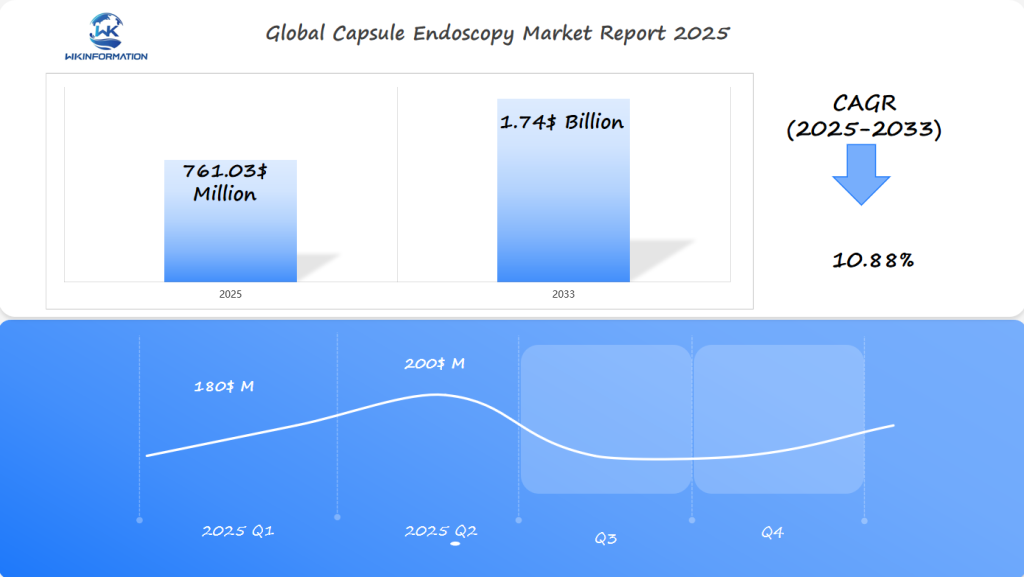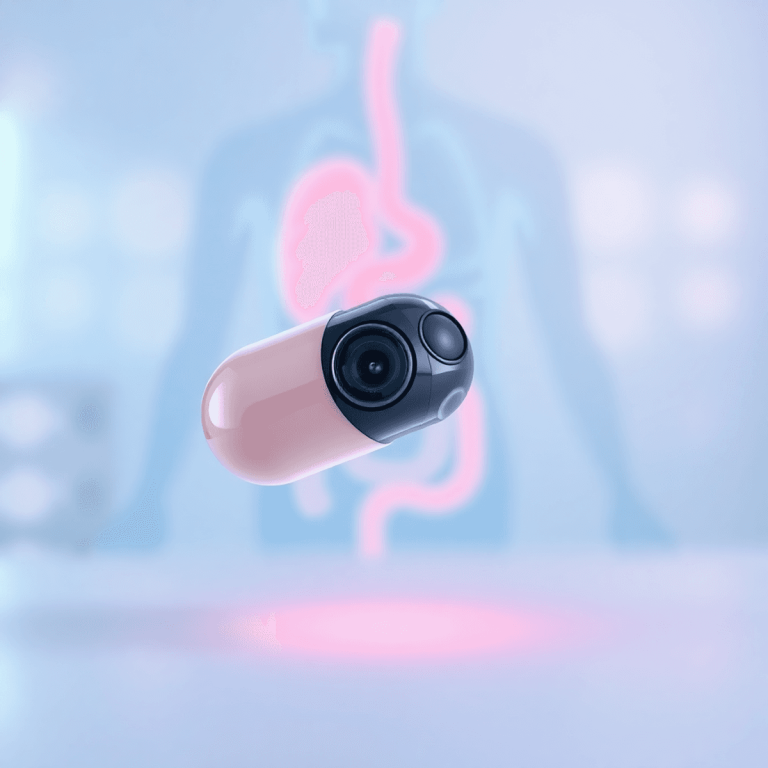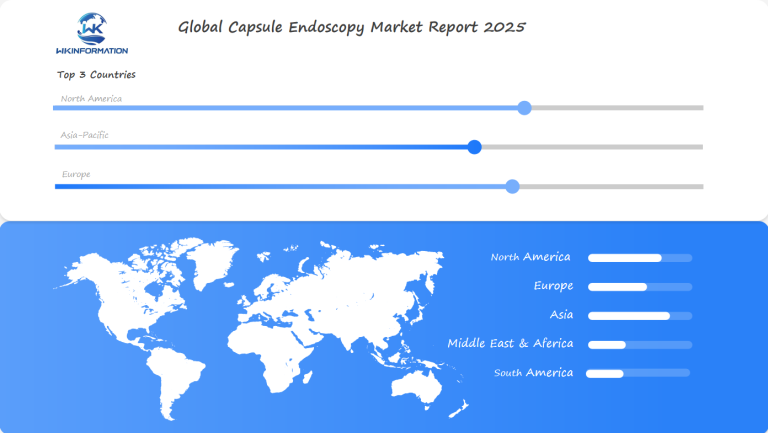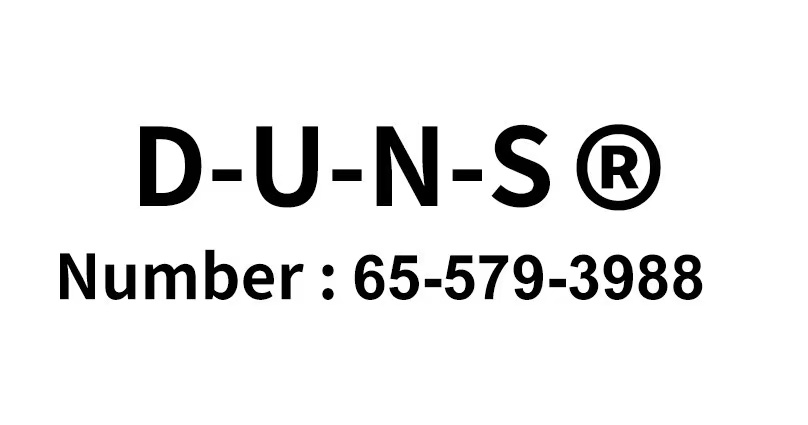2025 Capsule Endoscopy Market Analysis in the US, Germany, and Japan: Unlocking Global Insights with $761.03 Million Opportunity
The capsule endoscopy market size will reach USD 761.03 million in 2025 and is expected to reach USD 1.74 billion by 2033, with a CAGR of 10.88% from 2025 to 2033.
- Last Updated:
Projected Market Insights for Capsule Endoscopy in Q1 and Q2 of 2025
The Capsule Endoscopy market is expected to reach $761.03 million in 2025, with a strong growth rate of 10.88% from 2025 to 2029. In the first quarter, the market is projected to reach about $180 million, driven by increasing use of minimally invasive diagnostic procedures and rising demand for gastrointestinal health monitoring. By the second quarter, the market is expected to grow to approximately $200 million, continuing this strong growth.
The USA, Germany, and Japan are expected to lead this market, as these countries are at the forefront of medical innovation and healthcare advancements. The increasing awareness of gastrointestinal diseases and growing preference for non-invasive diagnostics will greatly contribute to the market’s growth in these regions.

Exploring the Upstream and Downstream Industry Chain of Capsule Endoscopy
Understanding the industry chain of capsule endoscopy involves examining both upstream and downstream processes.
- Upstream refers to the early stages of production, encompassing research, design, and manufacturing. This stage includes key players such as technology developers and component suppliers who focus on innovations like enhanced battery life, improved wireless connectivity, and AI-driven diagnostics.
- Downstream processes cover distribution, sales, and application in healthcare settings. Here, hospitals, clinics, and specialized healthcare providers play a crucial role by implementing these technologies in patient care.
Key Players in the Supply Chain
- Manufacturers: Companies like Medtronic and Olympus Corporation play a crucial role in producing advanced capsule endoscopy devices.
- Healthcare Providers: Hospitals and clinics that use these tools to diagnose gastrointestinal conditions.
- Distributors: Organizations in charge of transporting products from manufacturers to healthcare facilities.
Impact of Upstream Innovations
Technological advancements significantly influence market dynamics. Improved imaging capabilities enhance diagnostic accuracy; AI integration streamlines image analysis procedures; longer battery life ensures comprehensive gastrointestinal tract coverage. These innovations not only boost operational efficiency but also expand the potential applications of capsule endoscopy within clinical settings. This progression supports the market’s projected growth trajectory.
Trends Shaping the Capsule Endoscopy Market
The capsule endoscopy market is experiencing significant growth due to several factors, including:
- The increasing prevalence of gastrointestinal diseases
- The rising patient demand for non-invasive diagnostic procedures
Growing Need for Advanced Diagnostic Tools
Conditions such as inflammatory bowel disease and colorectal cancer have seen a significant increase, leading to a greater need for more advanced diagnostic tools. Capsule endoscopy, with its minimally invasive nature and comprehensive imaging capabilities, is quickly becoming popular.
Technological Advancements Driving Change
Technological advancements are playing a crucial role in this transformation of the market. AI-assisted diagnostics are a major breakthrough, improving both the accuracy and efficiency of capsule endoscopy examinations. These technologies enable better analysis of images, ensuring that abnormalities are identified with greater precision. Additionally, improved battery life and enhanced connectivity features like WiFi capabilities contribute to a smooth patient experience.
Key Factors Influencing Growth
Several key factors are influencing the growth of the capsule endoscopy market:
- Increased GI Disease Cases: The rising number of cases involving conditions such as Crohn’s disease is driving up demand.
- Patient-Centric Solutions: Non-invasive procedures align with patients’ growing preference for comfort and convenience.
- Innovative Technologies: AI and connectivity innovations are enhancing diagnostic outcomes.
These trends highlight the changing landscape of capsule endoscopy, indicating potential for better healthcare results and significant opportunities for stakeholders in this rapidly expanding field.
Key Restrictions Impacting the Capsule Endoscopy Market
Regulatory hurdles present significant challenges for capsule endoscopy manufacturers, impacting timely product launches and market competition. Diverse regulatory landscapes across regions like the US, Germany, and Japan lead to varying approval processes. This creates barriers to entry, as companies must navigate complex compliance requirements to bring new products to market efficiently.
Ensuring consistent quality and safety standards is another critical challenge in this rapidly evolving industry. Variations in compliance requirements between countries can make it difficult for manufacturers to maintain uniformity in product quality and safety. The need for rigorous testing and adherence to local healthcare regulations often results in delays and increased costs, affecting product availability.
Key Challenges Include:
- Navigating disparate regulatory frameworks across different regions.
- Maintaining consistent quality and safety standards amidst evolving technological advancements.
- Addressing regional variations in compliance requirements that influence market dynamics.
These restrictions can limit the pace of innovation, thus affecting the overall growth potential of the capsule endoscopy market. Understanding these complexities is essential for stakeholders aiming to capitalize on opportunities within this burgeoning sector.

Understanding the Geopolitical Factors Affecting Capsule Endoscopy
Geopolitical stability plays a crucial role in shaping healthcare investments and infrastructure development. Stable regions tend to attract investments in advanced diagnostic technologies, including capsule endoscopy, facilitating their widespread adoption. In contrast, regions experiencing political unrest may see delayed technological integration due to uncertain investment climates.
Impact of Healthcare Policies on Capsule Endoscopy
Healthcare policies vary significantly across regions, impacting reimbursement frameworks for capsule-based procedures. These discrepancies can influence market uptake and determine the pace at which these technologies are embraced by healthcare providers. For instance:
- United States: Strong reimbursement policies have supported the growth of capsule endoscopy by making it more accessible to patients.
- Germany and Japan: Both countries have comprehensive healthcare systems that support advanced diagnostic tools, although distinct regulatory landscapes may affect how quickly new technologies are adopted. Such variations in healthcare policies and their impact on the adoption of innovative medical technologies, like capsule endoscopy, highlight the importance of understanding regional healthcare dynamics.
Role of International Trade Dynamics
[International trade dynamics] also play a part in the distribution and pricing of capsule endoscopy equipment. Tariffs, trade agreements, and import/export regulations can affect the availability and cost-effectiveness of these devices in various markets, thereby influencing their global reach.
Understanding these geopolitical factors is essential for stakeholders aiming to navigate and thrive in the complex landscape of the global capsule endoscopy market.
Analyzing Capsule Endoscopy Market Segmentation by Type
Understanding the intricacies of market segmentation in capsule endoscopy is essential for stakeholders. Generally, capsule endoscopes can be classified into various types based on their technological features and uses.
1. Wireless Cameras
Wireless cameras are the most common type of device used for capturing images of the gastrointestinal tract. They offer a non-invasive method, making them easy to use and comfortable for patients since there is no need for invasive procedures.
However, there are some limitations to wireless cameras. One drawback is their limited battery life, which may affect the duration of image capture. Additionally, there can be potential connectivity issues that may impact the transmission of images.
Overall, wireless cameras provide a convenient and patient-friendly option for gastrointestinal imaging, but it’s important to consider their limitations as well.
2. Advanced Technologies
Recent innovations have introduced capsules equipped with enhanced features such as improved imaging sensors, extended battery duration, and AI-assisted diagnostics. These advancements significantly enhance diagnostic accuracy and efficiency but may involve higher costs and sophisticated operation requirements.
Comparing traditional wireless cameras to advanced technological options reveals distinct benefits tailored to specific clinical needs:
- Traditional models offer simplicity and accessibility, ideal for routine screenings.
- In contrast, advanced capsules cater to complex cases requiring detailed imaging and analysis.
This segmentation highlights how each type aligns with varying patient preferences and clinical demands, underscoring the importance of selecting the appropriate technology to optimize patient outcomes.
Applications of Capsule Endoscopy and Its Impact on the Market
Capsule endoscopy has transformed the field of gastrointestinal diagnostics by providing a non-invasive and patient-friendly option compared to traditional endoscopic procedures. This technology is mainly used for:
- Detecting and monitoring small intestine bleeding
- Diagnosing and managing Crohn’s disease
- Assessing celiac disease
- Identifying tumors
The market for capsule endoscopy is experiencing rapid growth due to several factors:
- Advancements in imaging technology
- Integration of artificial intelligence
- Improved designs of capsules
These developments are making capsule endoscopy more effective and accessible.
The increasing prevalence of gastrointestinal disorders, along with the rising demand for minimally invasive diagnostic solutions, is driving the growth of the market. As a result, capsule endoscopy is becoming an essential tool in modern healthcare.
Regional Insights into the Global Capsule Endoscopy Market
The global capsule endoscopy market is experiencing significant differences in various regions due to factors such as healthcare infrastructure, regulatory frameworks, and disease prevalence.
North America: The Market Leader
North America is currently leading the market, primarily because of:
- High adoption rates of capsule endoscopy technology
- Advanced healthcare systems that support its implementation
Asia-Pacific: The Fast-Growing Region
On the other hand, Asia-Pacific is emerging as a rapidly growing region. This growth can be attributed to:
- Increasing investments in healthcare
- A rise in cases of gastrointestinal diseases
Europe: A Strong Contender
Europe also remains a strong market for capsule endoscopy. The region benefits from:
- Supportive government policies that promote medical innovation
- Ongoing research initiatives aimed at improving diagnostic techniques
Understanding these regional dynamics is essential for market players aiming to expand their presence and tailor their strategies accordingly.

In-Depth Look at the US Capsule Endoscopy Market
The United States leads the capsule endoscopy market because of its well-established healthcare system, high patient awareness, and presence of major companies in the industry. The country’s emphasis on early disease detection and preventive healthcare has sped up the use of capsule endoscopy technology.
Furthermore, ongoing improvements in AI-powered image analysis and wireless capsule designs are making diagnoses more accurate and efficient. With more insurance plans covering capsule endoscopy procedures and a growing need for minimally invasive diagnostic methods, the US market is projected to keep growing.
The Capsule Endoscopy Market in Germany: Key Insights
Germany plays a crucial role in the European capsule endoscopy market due to its advanced medical technology industry and strong regulatory system. The country’s aging population and high rates of gastrointestinal disorders are driving the need for innovative diagnostic solutions.
Technological Advancements
German research institutions and medical device manufacturers are leading the way in technological advancements. They are developing next-generation capsules with:
- Improved battery life
- Real-time tracking
- Enhanced imaging capabilities
Growing Adoption
As healthcare providers in Germany prioritize better patient outcomes, the use of capsule endoscopy is expected to steadily increase.
Overview of the Capsule Endoscopy Market in Japan
Japan’s capsule endoscopy market is growing quickly, thanks to a strong technology support system and government programs that encourage advanced medical testing. The country’s high rates of stomach and colon diseases, along with an aging population, are increasing the need for new endoscopic solutions.
Top Japanese medical device companies are constantly improving capsule endoscopy technology by adding AI-powered diagnostics and enhancing capsule movement. With more regulatory approvals and healthcare funding, Japan is becoming a very active market for capsule endoscopy solutions.
Looking Ahead: Future Developments in Capsule Endoscopy
The future of capsule endoscopy is set to undergo significant changes with advancements in various areas:
- AI-driven diagnostics: The integration of artificial intelligence in the interpretation of capsule endoscopy images holds great promise for improving diagnostic accuracy and efficiency.
- Improved battery efficiency: Ongoing research aims to develop capsules with longer-lasting batteries, allowing for extended examination periods and more comprehensive assessments.
- Real-time data transmission: The ability to transmit data wirelessly and in real-time during the procedure has the potential to enhance patient care by enabling immediate analysis and decision-making.
Researchers are also investigating the possibility of using robotic capsules that can be actively controlled and maneuvered within the gastrointestinal tract. This innovation could further enhance both diagnostic precision and therapeutic interventions.
Furthermore, there are exciting prospects for multi-sensor capsules equipped with advanced technologies to measure pH levels, temperature variations, and pressure changes within the digestive system. Such capabilities would expand the applications of capsule endoscopy beyond mere imaging, providing valuable insights into various gastrointestinal disorders.
As these technological advancements continue to unfold, it is anticipated that capsule endoscopy will play an increasingly crucial role in shaping the future landscape of gastrointestinal diagnostics.
Competitive Analysis in the Capsule Endoscopy Market
The capsule endoscopy market is highly competitive, with major players leading the industry.
-
Medtronic plc — Ireland
-
CapsoVision, Inc. — USA
-
Check-Cap Ltd. — Israel
-
Olympus Corporation — Japan
-
RF Co., Ltd. — Japan
-
Shangxian Minimal Invasive Inc. — China
-
IntroMedic Co., Ltd. — South Korea
-
Fujifilm Holding Corporation — Japan
-
AnX Robotica — USA
-
BioCam
Overall
| Report Metric | Details |
|---|---|
| Report Name | Global Capsule Endoscopy Market Report |
| Base Year | 2024 |
| Segment by Type |
|
| Segment by Application |
|
| Geographies Covered |
|
| Forecast units | USD million in value |
| Report coverage | Revenue and volume forecast, company share, competitive landscape, growth factors and trends |
The capsule endoscopy market is set to grow significantly, with an expected value of $761.03 million by 2025. This growth is driven by advancements in technology and a growing understanding of the benefits that capsule endoscopy offers over traditional methods.
Opportunities exist for industry stakeholders to take advantage of this rapidly growing market, especially in areas like North America, Europe, and Asia Pacific.
The increasing occurrence of gastrointestinal diseases and the need for non-invasive diagnostic procedures further enhance the potential of the market.
For a deeper understanding of the future prospects of capsule endoscopy, consider exploring the comprehensive insights available in the Wkinformation Research report. Engaging with these resources can provide valuable guidance for navigating this dynamic landscape.
Global Capsule Endoscopy Market Report (Can Read by Free sample) – Table of Contents
Chapter 1: Capsule Endoscopy Market Analysis Overview
- Competitive Forces Analysis (Porter’s Five Forces)
- Strategic Growth Assessment (Ansoff Matrix)
- Industry Value Chain Insights
- Regional Trends and Key Market Drivers
- Capsule Endoscopy MarketSegmentation Overview
Chapter 2: Competitive Landscape
- Global Capsule Endoscopyplayers and Regional Insights
- Key Players and Market Share Analysis
- Sales Trends of Leading Companies
- Year-on-Year Performance Insights
- Competitive Strategies and Market Positioning
- Key Differentiators and Strategic Moves
Chapter 3: Capsule Endoscopy Market Segmentation Analysis
- Key Data and Visual Insights
- Trends, Growth Rates, and Drivers
- Segment Dynamics and Insights
- Detailed Market Analysis by Segment
Chapter 4: Regional Market Performance
- Consumer Trends by Region
- Historical Data and Growth Forecasts
- Regional Growth Factors
- Economic, Demographic, and Technological Impacts
- Challenges and Opportunities in Key Regions
- Regional Trends and Market Shifts
- Key Cities and High-Demand Areas
Chapter 5: Capsule Endoscopy Emerging and Untapped Markets
- Growth Potential in Secondary Regions
- Trends, Challenges, and Opportunities
Chapter 6: Product and Application Segmentation
- Product Types and Innovation Trends
- Application-Based Market Insights
Chapter 7: Capsule Endoscopy Consumer Insights
- Demographics and Buying Behaviors
- Target Audience Profiles
Chapter 8: Key Findings and Recommendations
- Summary ofCapsule Endoscopy Market Insights
- Actionable Recommendations for Stakeholders

Access the study in MULTIPLEFORMATS
Didn’t find what you’re looking for?
TALK TO OUR ANALYST TEAM
Need something within your budget?
NO WORRIES! WE GOT YOU COVERED!
Call us on: +1-866-739-3133
Email: infor@wkinformation.com
What is the projected growth of the Capsule Endoscopy Market by 2025?
The Capsule Endoscopy Market is projected to grow to $761.03 million by 2025, highlighting significant opportunities for industry stakeholders.
Why is it important to understand the market dynamics in regions like the US, Germany, and Japan?
Understanding market dynamics in key regions such as the US, Germany, and Japan is crucial for industry stakeholders as it helps them:
- Navigate regulatory challenges
- Identify growth opportunities
- Adapt to local healthcare policies
Understanding the Upstream and Downstream Components of the Capsule Endoscopy Industry Chain
In the capsule endoscopy industry:
- Upstream refers to manufacturers and suppliers involved in producing capsule technologies, such as those detailed in this NCBI resource.
- Downstream includes healthcare providers and facilities that utilize these products for patient diagnostics, a process that is often guided by specific standards and regulations as outlined in this GS1 healthcare reference book.
What trends are currently shaping the Capsule Endoscopy Market?
Current trends driving growth in the Capsule Endoscopy Market include:
- The increasing prevalence of gastrointestinal diseases
- A rising demand for non-invasive diagnostic procedures
Additionally, technological advancements such as AI-assisted diagnostics are enhancing accuracy and efficiency in examinations.
What regulatory challenges do capsule endoscopy manufacturers face?
Capsule endoscopy manufacturers face various regulatory hurdles across different regions that can delay product launches and restrict market competition. Ensuring consistent quality and safety standards amidst evolving regulations is also a significant challenge.
How do geopolitical factors influence the Capsule Endoscopy Market?
Geopolitical stability affects healthcare investments and infrastructure development initiatives that support advanced diagnostic technologies like capsule endoscopy. Variations in healthcare policies across regions also impact reimbursement frameworks for capsule-based procedures, influencing market uptake.


